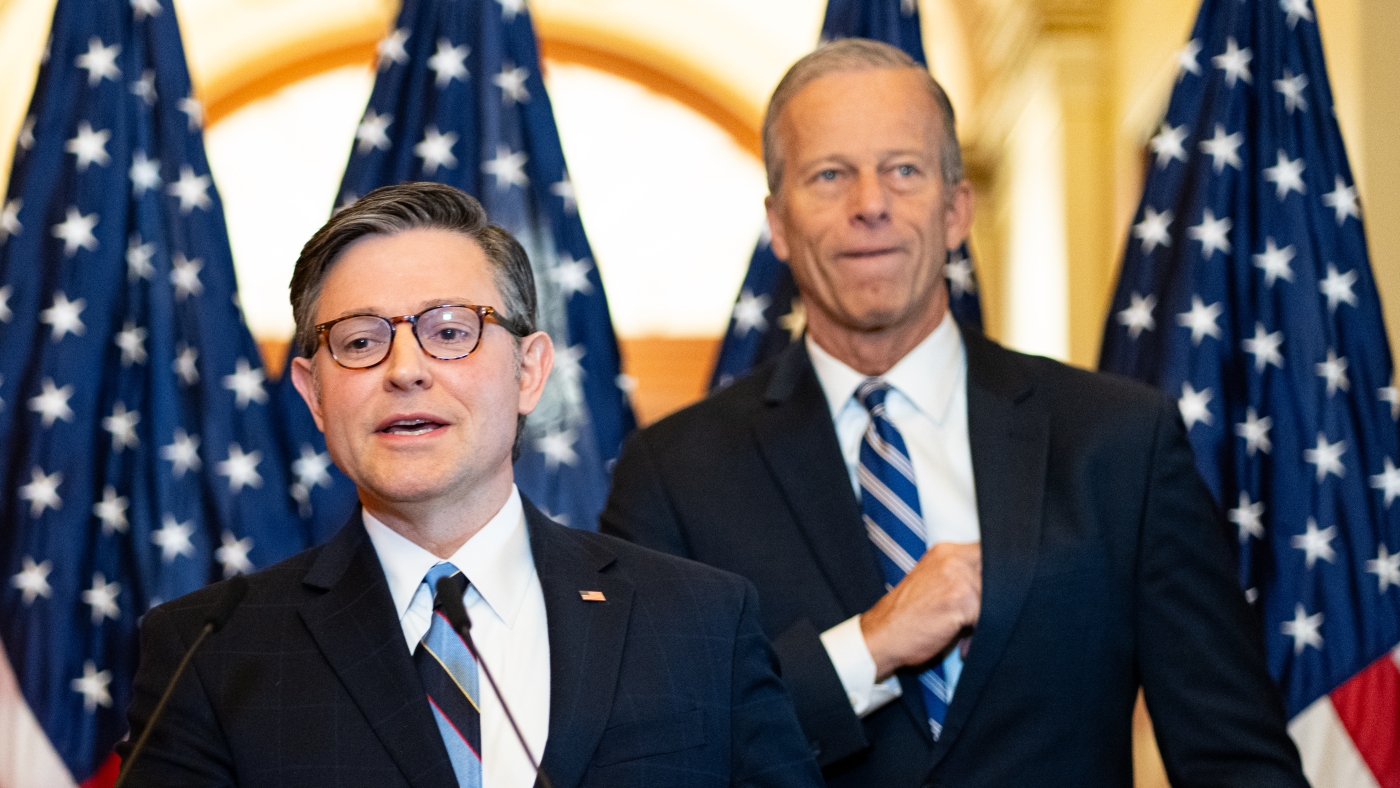Congress Faces Complex Challenges in Crafting Budget Legislation
As Congress reconvenes in Washington, D.C., the focus is on translating President Trump’s extensive domestic policy agenda into a comprehensive multi-trillion dollar legislative package. The proposal aims to encompass a range of initiatives, including tax cuts, increased funding for the Pentagon, and expanded border security spending, balanced by corresponding budgetary cuts.
Although Republicans hold majorities in both the House and the Senate, internal disagreements pose significant challenges to reaching a consensus on key aspects of the budget plan. The House narrowly passed the initial budget resolution before a two-week recess, and the next phase is set to commence this week. More details can be found here.
To expedite the legislative process, Republicans are employing a strategy known as reconciliation, which allows the Senate to bypass the typical 60-vote requirement. This involves committees adhering to specific directives to alter revenue, deficits, spending, or the debt limit. The budget committee will eventually consolidate these efforts into a singular legislative package for both chambers to vote on.
Achieving this will test the GOP’s ability to resolve internal divisions, as they operate with slim majorities. “They have a very slim majority,” Josh Chafetz, a law professor at Georgetown University, remarked. “Can they actually keep the entire conference together in both chambers? We haven’t really seen many tests of that yet because there’s been so little legislative activity.”
Spending and Cuts: Points of Contention
The proposed legislation aims to extend the 2017 Tax Cuts and Jobs Act, raise the debt ceiling, and increase defense and border security spending. However, Republicans differ on spending cut targets. The House mandates $1.5 trillion in cuts, while the Senate sets a $4 billion minimum.
Sarah Binder, a politics professor at George Washington University, noted the pressure on fiscal conservatives due to growing deficits since the original tax package. “Conservatives want to do rather large spending cuts,” she said. “There’s more disagreement than one might’ve expected for something (normally) as unifying as tax cuts for the Republican party.”
Despite Senate GOP leaders’ promises for larger cuts, unifying the party remains challenging. “Republicans have always had this challenge where they talk about deficit reduction in the abstract, but that becomes very difficult when it’s time to specify what they would cut to fix the budget,” explained Jessica Riedl, a senior fellow at the Manhattan Institute.
The Medicaid Debate
One of the most contentious issues is the proposed cuts to Medicaid. The House has directed the Energy and Commerce Committee to identify $880 billion in savings over the next decade. A report by the Congressional Budget Office suggests that substantial Medicaid cuts are likely necessary to meet these savings targets.
However, some Republicans, including Missouri Sen. Josh Hawley, are opposed to significant Medicaid cuts. A group of House Republicans has expressed their refusal to support any bill that reduces Medicaid coverage for vulnerable populations, as indicated in their letter.
Speaker Johnson has assured that benefits legally entitled to individuals will be protected, focusing on cutting “waste, fraud, and abuse” for savings, though experts doubt this will suffice. “This is going to tie Republican lawmakers in knots,” Riedl said. “When you make certain promises that major spending programs will not be cut, and it turns out that such promises are mathematically impossible within the savings framework you’ve promised, that’s when lawmakers panic.”
Time Constraints and Legislative Pressure
The legislative timeline adds additional pressure, with Republicans aiming to include a debt limit increase in the bill. Analysts anticipate the federal government could reach its borrowing limit by summer, and the reconciliation process requires the bill’s passage by September 30.
Binder highlighted the urgency: “This legislative schedule is going to really tighten how much time they have left because they’re going into the summer season. Otherwise, the budget resolution in the Senate loses its privilege if it’s expired.”
Current Policy Baseline Debate
The term “current policy baseline” may become prevalent in the coming discussions. This approach suggests that extending the 2017 tax cuts, due to expire, should be considered ongoing policy without additional cost. Kogan described it as: “The equivalent would be — what if Democrats did a one year of Medicare for All, completely unpaid for, and then they come back next year and say, OK, it’s free to continue.”
Maya MacGuineas, president of the Committee for a Responsible Federal Budget, criticized this method as potentially harmful to budget integrity. “This ad-hoc, inconsistent, manipulative, and disingenuous approach to budgeting is enough to make your head explode, and it is going to make the debt explode,” she stated in a statement.






